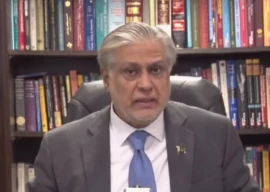
The top economic advisory body has slammed the government’s budget strategy, terming it anti-poor and claiming it cannot boost growth due to squeezing fiscal space. It has also suggested that loss of jobs will continue next year as well.
It was the second major blow to a thin paper, outlining the government’s priorities in the wake of a dwindling economy, as the opposition has already termed the document a “pack of lies”.
In a meeting of the Economic Advisory Council (EAC) on Saturday, attended also by Finance Minister Dr Abdul Hafeez Shaikh, top economists, including former finance ministers, voiced their reservations about the upcoming budget. The economists criticised the government for not taking difficult economic decisions that were necessary to come out of the crisis.
They said the biggest concern for next year was double-digit inflation. The government has targeted an inflation rate of 12 per cent for fiscal year 2011-12.
“The government itself is responsible for the mess, as it is shying away from taking difficult decisions, which will affect the ruling class the most,” said former finance minister Shaukat Tarin. He urged the government to strike a balance between growth and economic sustainability, and added that if agriculture tax was not levied, urban political parties would not let the government collect retail tax.
Tarin explained that if the government did not present a comprehensive energy plan to overcome the crisis in 15 days, people would come on streets, making it difficult for the government to present the budget.
EAC showed consensus only on the issue of taxing the agricultural sector. It also recommended that canal water be priced realistically and advocated continuation of power tariff rationalisation. However, the economists opposed the revival of wealth tax, terming it regressive. The Pakistan Business Council has already opposed the wealth tax.
Economic growth
For the outgoing fiscal year, economic managers have estimated a 2.8 per cent increase in national income. For the upcoming fiscal year, the gross domestic product (GDP) growth is estimated at 4.2 per cent, according to the Budget Strategy Paper. It seems the government will continue to follow a tight monetary policy in the name of macroeconomic stability, which will result in a slower growth.
According to the Asian Development Bank (ADB), Pakistan needs a growth rate of around eight per cent to create jobs for three million young people entering the market every year.
“Delays in implementing policy measures and fiscal management practices that are necessary for macroeconomic stability have undermined investment in infrastructure and production capacity.”
Former finance minister Dr Hafiz Pasha said the government did not have enough fiscal space, without which it would be difficult to present a growth-oriented budget. Ironically, the Ministry of Finance has been selling two budget deficit targets. At one point, the budget strategy paper puts the deficit estimate for the upcoming fiscal year at 4.5 per cent (Rs950 billion). However, another page shows the figure at five per cent of GDP (Rs1 trillion).
The economists also asked the government to increase the tax-to-GDP ratio by at least one per cent every year in a bid to increase the lowest ratio in the world, which currently stands at 9.1 per cent. However, the government has planned to add only half a percentage point this year.
Published in The Express Tribune, May 1st, 2011.

1722586547-0/Untitled-design-(73)1722586547-0-165x106.webp)


1732326457-0/prime-(1)1732326457-0-165x106.webp)












COMMENTS (1)
Comments are moderated and generally will be posted if they are on-topic and not abusive.
For more information, please see our Comments FAQ